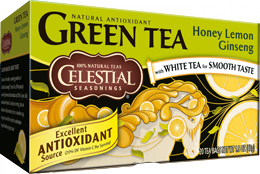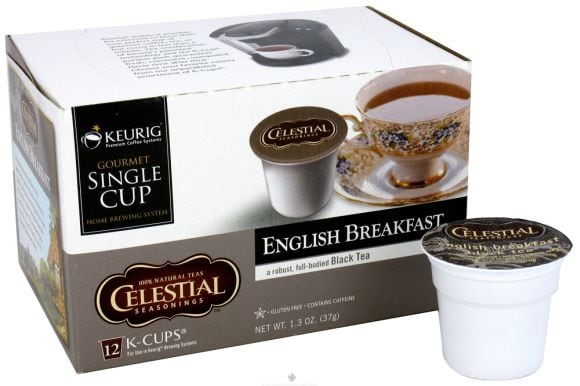Hain - which has recently been hit with a separate false advertising lawsuit alleging that it misrepresents its BluePrint juices as ’100% raw’, and 'Unpasteurized' because they are preserved using high pressure processing (HPP) - is accused of violating multiple consumer protection laws in California.
In the complaint, filed in the central district of California on November 6, plaintiff Tatiana Von Slomski alleges that 10 Celestial Seasoning teas “contain contaminants in levels violating federal standards included in 40 CFR § 180, and some contain contaminants included in the current Proposition 65 list [including Propachlor and Propargite], for which no safe harbor limits have been established”.
Von Slomski (represented by law firm Ahdoot & Wolfson, PC) would not have bought the teas in question, or paid as much for them, had they not been promoted as '100% natural' and had she known that they “contained contaminants”, says the complaint.
Hain Celestial: Investment firm that commissioned Eurofins analysis is a known short seller motivated to spread false, incomplete and out-of-context information
The basis for her allegations is a report (click here) published by investment firm Glaucus Research in February 2013 citing data from analytical testing firm Eurofins, which offers a variety of pesticide screening services.
This alleged that 10 of the 11 Celestial Seasoning teas* tested contained residues of pesticides or insecticides** at levels exceeding thresholds set by the Environmental Protection Agency (EPA).
“91% of the Celestial Seasonings teas tested contained residues of pesticides either in amounts exceeding federally prescribed tolerance levels or for which no regulatory limit has been established under federal law, meaning that such samples violated EPA pesticide regulation 40 CFR 180.”
Hain Celestial: This lawsuit is without merit

However, a spokesperson for Hain Celestial told FoodNavigator-USA that the firm was "confident that the facts will demonstrate that the lawsuit... is without merit".
The claims in the lawsuit were "recycled from a report issued in February by a 'short seller', an investment firm which stood to gain financially if Hain Celestial’s stock price declined", claimed the spokesperson.
"As we stated when these baseless allegations first came to light, this kind of firm is motivated to spread false, incomplete and out-of-context information. Even though we were 100% confident in the quality and safety of our teas, we sent the same teas for independent, third party testing by the industry-leading National Food Laboratories, Inc. (NFL).
"As the attorneys in this litigation admit, NFL’s testing detected no pesticides in the Celestial Seasonings brewed teas and NFL’s testing reaffirmed that Celestial Seasonings teas are safe."
In a ‘Safety Assurance’ statement on its website (click here) the company adds that it tests incoming raw materials for commonly-used pesticides, herbicides and insecticides, and rejects them “when these substances are detected beyond acceptable limits as defined by industry-recognized and/or government agencies, including the EPA, FDA, European Union Pharmacopeial Convention, and Codex Alimentarius”.

Attorney: I haven’t seen these types of allegations before
So what do food law attorneys make of the case?
Rebecca Cross, a San Francisco-based attorney at law firm BraunHagey & Borden LLP, told FoodNavigator-USA that it was an unusual lawsuit: “I haven’t seen these types of allegations before.”
Randy Shaheen, a partner in the regulatory and advertising and marketing practice groups at law firm Venable LLP in Washington DC, said he too had not see a lawsuit like this before, but said it was evidence of how plaintiff's attorneys are "getting more creative" when it come to false advertising cases vs food industry defendants.
Given that the products in question are not certified organic (where strict rules apply over what pesticides are permitted), and there is no legal definition of 'natural', you could argue that a reasonable consumer might assume that products such as apples or tea plants are "probably grown with some pesticides", but are still 'natural' products, he said.
"Then it comes down to whether consumers would expect all traces of pesticides to disappear in the final product."
Did NFL and Eurofins use different testing methodologies?
As for the test results, Hain Celestial has not released the results of the National Food Lab analysis, so it has not been possible to compare them with the results of the tests conducted by Eurofins.
John Reuther, president and lab director at the Eurofins Central Analytical Laboratory in Metairie, Louisiana, told FoodNavigator-USA last night that he was unaware that a lawsuit had been filed citing the Glaucus Research report/Eurofins data.
He also said that Eurofins had not been commissioned directly by Glaucus Research to analyse the Celestial Seasonings tea samples, but had tested them for a third party, which had in turn disclosed the results to Glaucus.
However, he noted that according to Hain's statement above, NFL tested residues in the brewed teas, whereas Eurofins tested the dry tea.
Glaucus Research: At no time did we take custody of, touch or handle any of the tea samples
The Feb 2013 report from Glaucus Research said: “It is important to note that at no time did we take custody of, touch or handle any of the tea samples. Rather, we had the products shipped directly to Eurofins from the company’s website and other online retailers.
“We would also like to encourage regulators and investors with a significant stake… in Hain to test the Celestial Seasonings teas. Such tests cost a few thousand dollars and can be completed in as little as 48 hours.”
*The 10 Celestial Seasonings teas cited in the complaint are: Sleepytime Herbal Tea, Sleepytime Kids, Goodnight Grape, Green Tea Peach Blossom, Green Tea Raspberry Gardens, Authentic Green Tea, Antioxidant Max Dragon Fruit, Green Tea Honey Lemon Ginseng, Antioxidant Max Blackberry Pomegranate, Antioxidant Max Blood Orange, and English Breakfast Black KCup.
**The ‘contaminants’ allegedly found in the teas by Eurofins include the insecticides Buprofezin, Cyhalothrin lambda, Cypermethrin, p,p’-Dichlorodiphenyltrichloroethane, Diazinon, Imidacloprid, Malathion, Profenofos, Permethrin, Pyridaben, Propachlor, Thiamethoxam, Thiacloprid, Chlorfenapyr, Dimethoate, Endosulfan, Fludioxonil and Fipronil; the pesticides Dimethachlor, Chlorpyrifos-ethyl, Hexaflumuron, and Triazophos; and the fungicide Carbendazim, which is not approved for use on foods sold in the US.
The analysis of the individual products starts on page 29 of the report. Click here.
The case is Von Slomski v Hain Celestial Group Inc, 8:2013cv01757.
